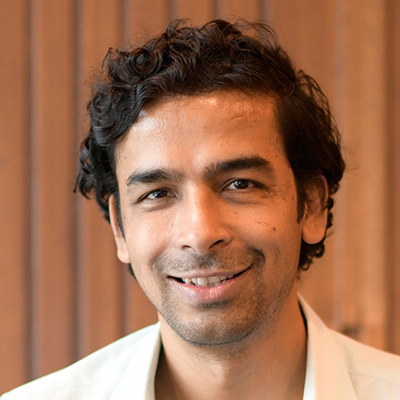BUSINESS
Anuj Srivastava: The Visionary Behind Livspace’s Path to Becoming a Unicorn

Anuj Srivastava is the driving force behind Livspace, a Bengaluru-based home interiors start-up that recently achieved unicorn status after a successful Series F fundraising round led by KKR. The company now boasts a valuation exceeding $1 billion, marking a significant milestone in Srivastava’s entrepreneurial journey. Livspace’s recent $180 million Series F funding was a major milestone for the company. KKR, a private equity group, played a pivotal role in this fundraising round. Several existing investors, including the Ingka Group (the holding company behind Ikea), Jungle Ventures, Venturi Partners, and Peugeot Investments, also contributed to the successful capital raise.
The company’s strategy moving forward is to expand into international markets, a journey that has already begun in Singapore. While Livspace has established its presence in its core market, India, it is now looking to replicate its success across the Asia-Pacific (APAC), Middle East, and Australia regions. The expansion into Saudi Arabia, in particular, is marked by a significant joint venture with the Alsulaiman Group, Ikea’s operating partner in the region. Together, they invested $50 million to tap into the burgeoning real estate market, especially the residential segment in Saudi Arabia. Meanwhile, in Singapore, Livspace took a controlling stake in Qanvast, a home remodeling and design platform, to bolster its presence.
Livspace’s remarkable journey from a startup to a unicorn reflects its visionary leader’s ability to capitalize on the massive market opportunity. In India alone, the home improvement market is valued at a staggering $30 billion, with more than 95 percent of it being unorganized and serviced by independent interior designers, contractors, and laborers. To address the challenges of dealing with multiple vendors, price opacity, and unpredictable timelines, Anuj Srivastava, along with his co-founder Ramakant Sharma, launched Livspace in 2015.
The Livspace business model is tech-enabled and designed to provide a seamless, trusted, and predictable home improvement experience. It begins with an online survey to understand the customer’s scope of work, preferences, and budget. Customers are then matched with one of Livspace’s 3,000 interior designers. Following online and physical consultations, the designer uses Livspace’s proprietary software to create a mock-up for the customer. Once approved, the company engages third-party contractors to execute the project.
Livspace has made impressive strides in the home interiors industry, boasting over 100,000 rooms delivered across India, Singapore, and Malaysia. Notably, the company’s Gross Merchandise Value (GMV) has been on a rapid upward trajectory, doubling every year. In FY22, Livspace is projected to achieve a GMV of $700 million. This exponential growth is supported by the fact that Livspace’s GMV is calculated based on the booking amount, with the actual revenue realized within 4 to 5 months.
Despite its growth and achievements, Livspace has faced some criticism and customer complaints, with concerns ranging from delayed timelines to increased costs. Some customers have voiced their dissatisfaction through social media channels, and even a dedicated review website, Livspace-reviews.com, was created by an unhappy customer. Additionally, former interior designers at Livspace have reported that a significant number of projects resulted in customer complaints, often attributed to third-party vendor quality issues and communication gaps within the operations team.
Anuj Srivastava acknowledges these concerns but highlights that Livspace has improved its Net Promoter Score (NPS) from 64 to 90, indicating high customer satisfaction. The company has made efforts to address these issues and aims to reduce project delays to enhance customer experience. While industry insiders are puzzled by the company’s ability to secure substantial funding despite these challenges, Anuj Srivastava asserts that Livspace’s investors are more focused on financial performance than customer experience. With high margins and real customer pain points in the home interiors industry, the business remains attractive to investors.
